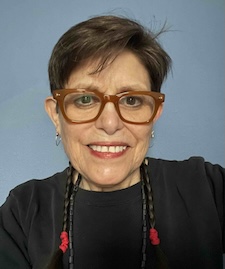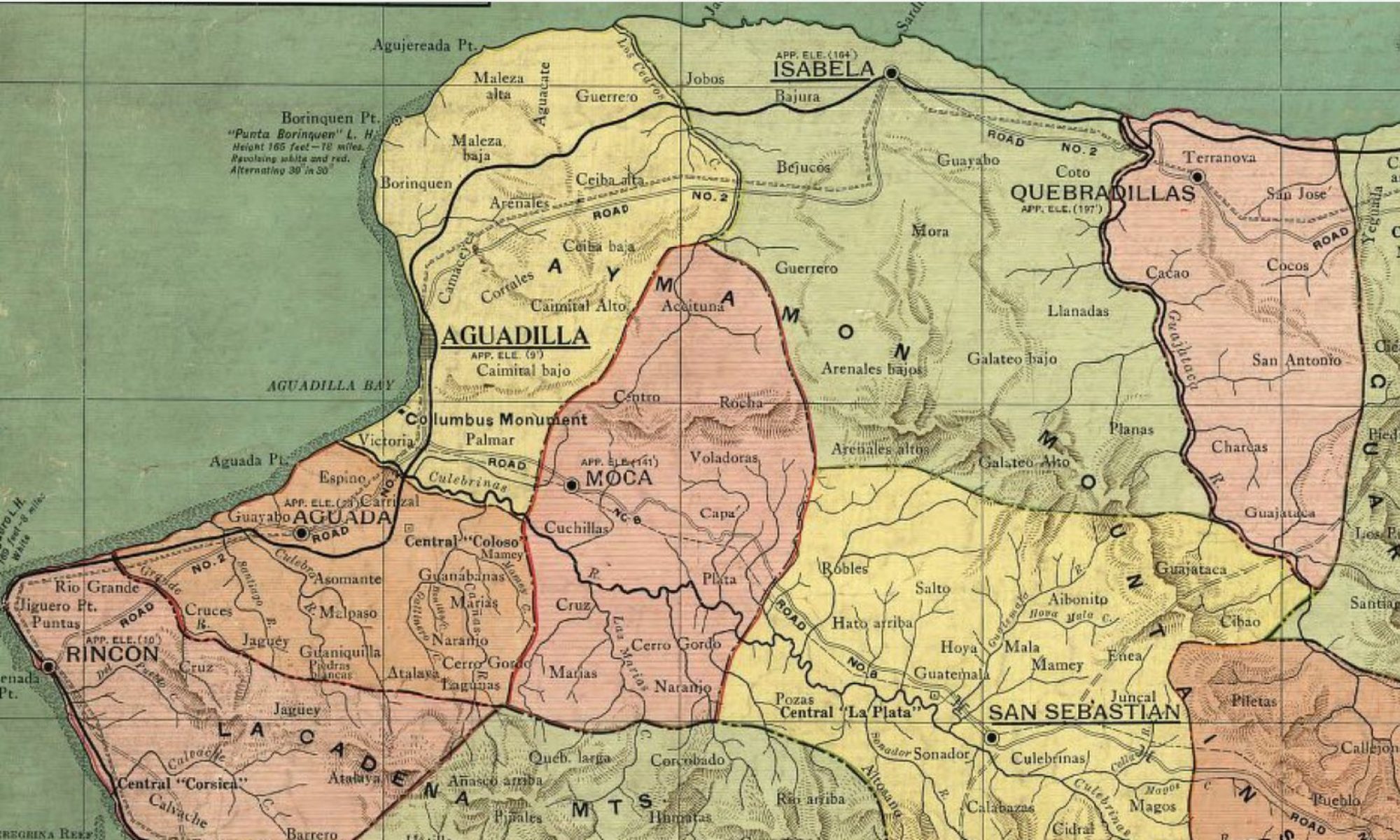Maburika! Join me as I research ancestors and discuss genealogy research with a Caribbean focus. Also on this site are various projects linked by place and family, and a couple of resource pages you may find helpful.
Blog
November 2025: Presentations & Podcasts
This was a busy month! On Tuesday evening, I was a special guest on Shamele Jordon’s Genealogy Quick Start on the Migration and Names episode, talking about my third great grandfather in The Many Names of Telesforo Carrillo, based on a previous blog post. She is an amazing host, and I love her energy. Michael …
Finding Moses Williams: a virtual program, 19 Nov. 2025
Thrilled to announce i’ll be presenting along with four other speakers at an upcoming virtual program. The Library Company of Philadelphia’s Program in African American History and the Center for American Art at the Philadelphia Art Museum are sponsoring the event. My twenty minute talk, “Not Yet Completely Free: Gradual Emancipation and the Family of …
Continue reading “Finding Moses Williams: a virtual program, 19 Nov. 2025”
Vale Ancestors of Camuy: Estevan Vale
A few weeks ago, I saw a hint on my Ancestry family tree for Estevan Vale Caban. To my great surprise, it included a photograph! Could it be my great uncle? After finally locating the origin of a foto for Estevan Vale in Ancestry’s Passports database, I was struck by how much of a desire …
About

Mabrika! Join me, Ellen Fernandez-Sacco as I research ancestors and discuss genealogy research with a Caribbean focus. Also on this site are projects linked by place & family & two resource lists, so feel free to check them out!
My roots are in Boriken, and tie together the islands of New York City and Puerto Rico. I’m interested in the diasporic flows of settler colonialism , enslavement and emancipation. This can facilitate revisiting ancestral communities through a genealogy that reaches across time and place. Because of DNA, genealogy, research and the amazing circles of elders, family, friends, and mentors I’ve learned from, I teach people how to take a deep dive into the oceans of colonization, diaspora and multiple histories to better understand how one came to be.
Education
I earned my doctorate in Art History (UCLA 1998), and my research focused on the history and development of early American museums. I was a President’s Postdoctoral Fellow (Architecture) and then Visiting Scholar (Beatrice M. Bain Center; History of Science & Technology) at UC Berkeley, where I continued working on several projects involving violence and collections, slavery and the representation of Indigenous people within museums, particularly at Monticello’s Indian Hall and Peale’s Museum. I held fellowships at many amazing archival institutions, with equally amazing archivists & library staff at the American Philosophical Society, Library Company of Philadelphia, Thomas Jefferson Foundation, Cal’s Bancroft Library among others. This background in intensive primary source research helps enormously with doing my current genealogical & contextual work.
After a time, I wanted a break from the historical traumas visited by settler colonialism, and traveled to Moca, Puerto Rico, the town where my mother was born. There I learned about the tradition of Mundillo, traditional Puerto Rican lace making, over the course of several trips there. Mokay graciously took me to interviewlas tejedoras, (the lacemakers) a time when the Museo del Mundillo Puertorriqueno was newly founded by him and a group of tejedoras. Juan Sotomayor taught me about the history of the cuatro. Ada Hernandez introduced me to the wealth of mundillo’s practice in Moca. Her sister Malen (QEPD) also provided me with insights into making mundillo during her youth. Only later did I learn that all were cousins too. I wrote about her husband’s Benejan ancestors in the third article of my Missing Registro de Esclavos series in Hereditas. I deeply appreciate the gift of time from so many people, and will share more about them in future posts.
Who we are
Our bodies are testament to the staggering porosity of Boriken/Puerto Rico as a site within the domain of the Spanish empire, seated closely to islands overseen by British and French empires, that attempted to enslave the first people who survived Columbus and the Africans forced to go there that created networks of Maroon communities– then add endogamy as a means of power– potentially means one does not have to leave the island to gain this rich genomic inheritance. I’m curious about this journey through enslavement, migration, self liberation and freedom. It’s something we are still engaging today. As so many are learning, it is these histories of survival and resilience that have the power to heal, and inspire self care. Our ancestors matter.
Family, Place, Context
Discovering family connections meant meeting networks of cousins tied to my maternal line’s Babilonia surname. I met Gaspar Matias Babilonia his wife Sylvia Velez and family, who introduced me to other Babilonia cousins in Aguadilla, Moca and Quebradillas. Ultimately my genealogical research led to a series of Babilonia Family Reunions in Moca that began in 2008 and was attended by over 200 people. Nydia and Nancy Segui founded a non-profit organization in Puerto Rico to continue these events .
One of the most memorable experiences I had in Moca was to attend an areyto performed by the Concilio Taino in the Plaza in December 2007, and to visit Caguana, where the Taino ball court is, tucked beneath sacred mountains. Since then, I found that I have Boriken Taino ancestry on my maternal and paternal lines, and I honor my indigenous ancestors from the Caribbean and beyond. I and two others received names in a naming ceremony this past November, and getting to this point has been a journey. I am also a Founding Member of a cultural organization, Coki-Atiaono-Ri for Tainos in the diaspora. We are still here.
Of late we are witness to the emergence of multiple sites across Boriken, and multigenerational, and diasporic Taino and their allies are raising our voices to preserve sites rather than destroy them for development. Having a proposed sewer line go through a multilayered site like Caguitas, where there are some 18 ancestors buried is simply unacceptable. Acknowledging these Indigenous ancestors and all who preceded them means that there is an active Taino community for the municipality and archaeologists involved that requires consultation. This is a time that many communities are resisting development that will disturb these sacred sites.
Exploring suppressed identities within family histories is an issue many African and Indigenous genealogists work on. They do this by building the historical contexts that lend visibility to people previously considered not important or proper enough to research. My endogamous genes come from enslaved African and local Indigenous ancestors from Puerto Rico, ancestors who were military men, and later hacendados and their enslaver families, the Caribbean Basin and Africa. Additional fragments have spread from the Iberian peninsula and out to Northern and Central Europe. There are North and West Africans and over to the Middle East, along with small percentages of Azkenazi and Sephardic markers.
Publications
Over the last two years, i’ve published on the family of Moses Williams (1776-1830) in the Journal of the Afro-American Historical and Genealogical Society that won a Phillis Wheatley Literary Award from the Sons and Daughters of the US Middle Passage, appeared on Bernice Bennett’s podcast series, Ancestor’s Footsteps to discuss my findings on the Williams family, presented at the Library Company’s symposium, Finding Moses Williams, with four remarkable scholars who provided different perspectives on the nations’ first Black museum professional.
I’ve also published articles on Puerto Rican genealogy in the journal Genealogy, and in Hereditas, Journal of the Sociedad Puertorriquena de Genealogia. In 2024, completed the four article series in Hereditas on the Missing Registro de Esclavos for NW PR.
I have a book chapter on the history of Mundillo in the collection Women and Needlework, thanks to a Senior Latino Smithsonian Fellowship. The stories of the women who practice mundillo are also histories of strength and resilience that deserve to be known. My hope is that for peoples across the Caribbean, and in Puerto Rico, that places like the Museo del Mundillo Puertorriqueno in Moca and the collectives tied to Casa Pueblo in Adjuntas, the Taino peoples that span the island continue to build their communities for a more sustainable and equitable future. Boriken resists being swallowed by corporate interests.
With my friend John Kysela, I had the pleasure of meeting the French actress Daniele Delorme (QEPD) who gave us her blessing to work on a book on her father, the French artist Andre Girard (1901-1968). Soon, there will a section of the blog entitled The Man Who Painted on Light: Andre Girard (1901-1968), with images and excerpts of our forthcoming book.
Stuff I do
My work integrates the family history and genealogy of people of color, cultural and class based differences. I’ve given presentations on Puerto Rican genealogy for Who Is Nicka Smith’s Patreon group, and in November 2025 was a guest on Shamelle Jordon’s program, Genealogy Quick Start. I was also a guest on another episode of the Rediscovering Latinidad podcast.
In the spring I gave a workshop on genealogical resources for Vieques for Memoria Decolonial. Participating in the workshop in potential preparation for the volume Cimarron was a great way to meet scholars working on various locations for their histories. This was a followed the panel discussion the year before, Mareas de Memoria: Black History and Genealogy in Puerto Rico in April 2024 with Dr. Jada Benn Torres and Melanie Maldonado Diaz of PROPA.
I’ve served on the DEI Committee for the NGS, and as Past President, President, Vice President, and Board Member of the California Genealogical Society, & its volunteers continue to push the boundaries of the organization since its founding nearly 120 years ago. I’m also founder and co-moderator of Sociedad Ancestros Mocanos on Yahoo! Groups since June 2005, and yes, we’re on Facebook these days. I’m a graduate of ProGen 16, ProGen Law (beta) and now have over 2 decades of genealogical experience. Let’s talk if you’re interested in exploring your family history.
I was a proud panelist & curator on Black ProGen LIVE, hosted by Nicka Smith & True A. Lewis. This is a great resource for getting started in genealogy, with 130 episodes on YouTube.
Remember, genealogy is the democratization of history. Get those stories out there!
Busca sus raices, encuentra su gente!
.
Blog
November 2025: Presentations & Podcasts
This was a busy month! On Tuesday evening, I was a special guest on Shamele Jordon’s Genealogy Quick Start on the Migration and Names episode, talking about my third great grandfather in The Many Names of Telesforo Carrillo, based on a previous blog post. She is an amazing host, and I love her energy. Michael …
Finding Moses Williams: a virtual program, 19 Nov. 2025
Thrilled to announce i’ll be presenting along with four other speakers at an upcoming virtual program. The Library Company of Philadelphia’s Program in African American History and the Center for American Art at the Philadelphia Art Museum are sponsoring the event. My twenty minute talk, “Not Yet Completely Free: Gradual Emancipation and the Family of …
Continue reading “Finding Moses Williams: a virtual program, 19 Nov. 2025”
Vale Ancestors of Camuy: Estevan Vale
A few weeks ago, I saw a hint on my Ancestry family tree for Estevan Vale Caban. To my great surprise, it included a photograph! Could it be my great uncle? After finally locating the origin of a foto for Estevan Vale in Ancestry’s Passports database, I was struck by how much of a desire …
Contact
Contact me @efsacco via Twitter, LinkedIn or FaceBook
